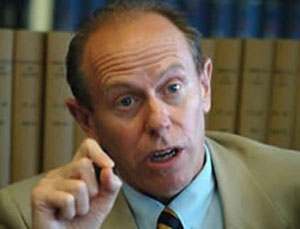
ZIMBABWE is recognised as having one of the best education systems in Africa, but when I took office as Education minister in February 2008, I found it in chaos. Nearly all schools were closed.
– David Coltart
Approximately, 90 000 teachers were on strike, public exams written the previous year hadn’t even been marked and there were hardly any textbooks in schools.
Morale among teachers was low, 20 000 teachers left the service in 2007 and 2008 mainly because hyperinflation had rendered them destitute. Many had been beaten and intimidated by militia loyal to President Robert Mugabe.
There was little I could offer to attract teachers back into service.
After years of mismanagement of the economy by Mugabe’s government, treasury’s coffers were dry. We could only offer a monthly salary of $100 to teachers.
I engaged teacher trade unions and arranged for them to meet with the new Finance minister so that they could see for themselves the parlous state of the economy.
I brought their leaders on to a new Education Advisory Board and implemented their suggestions. I offered immediate protection for teachers facing threats by moving those feeling insecure to safety. I declared an amnesty for those teachers who had fled.
- Chamisa under fire over US$120K donation
- Mavhunga puts DeMbare into Chibuku quarterfinals
- Pension funds bet on Cabora Bassa oilfields
- Councils defy govt fire tender directive
Keep Reading
Realising that the government was not in a position to pay teachers a livable wage, I turned to parents and allowed them to pay teachers incentives.
They responded magnificently and in most schools increased teachers’ conditions dramatically. In Cabinet, I argued for improved conditions for teachers.
At the end of my tenure as minister, the education sector had been stabilised. All schools are now open. Exams are written and marked on time.
The textbook and pupil ratio is 1:1, the best in Africa.
But key to stability is the fact that we now have 109 000 teachers in service and have not suffered any work disruptions in schools for two years.
Entry level teachers are now paid $400 per month and parents are still supplementing teacher salaries through incentives. This is still low, but way above what they earned when I took over.
Having got teachers back into service, I then focussed on the professional development of teachers.
Agreement was recently reached with the Global Partnership for Education to commence a $23,6 million teacher-retraining exercise.
Another programme assists teachers identify children who suffered during the chaos years pre-2009 so that deficiencies in literacy and numeracy rates can be addressed.
Despite the improvements of the last two years, I remain concerned regarding the plight of Zimbabwe’s teachers and education sector.
A committed and enthusiastic teacher body is the most important element in any education system. The leading education systems in the world in countries such as Singapore, South Korea and Finland are marked by the way they treat teachers.
In those countries, teaching the profession attracts the brightest students because the profession is well paid and respected. In Finland one cannot teach without a Masters degree.
If Zimbabwe is to build a world-class education system, future governments need to recognise the need to invest heavily in the sector and particularly in teachers.
Teachers need to be paid better, need better housing and living conditions, especially in remote rural schools and need to be respected.
Teacher training colleges need to be improved and programmes for professional development implemented.
A strong education system is the most important foundation for sustained economic growth and development in all countries. But key to that strength is how teachers are treated.
Sadly many developing countries treat their soldiers better than teachers.
The same countries often invest more in defence and in the retention of power than they do in education. That certainly applies to Zimbabwe.
For as long as that continues, the goal to transform Zimbabwe into an African economic powerhouse will remain illusory.
This article was first published by the Huffington Post in honour of World Teacher Day celebrated on October 5.










